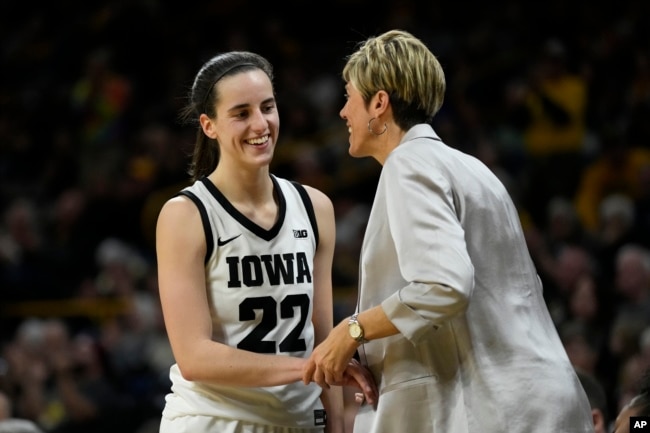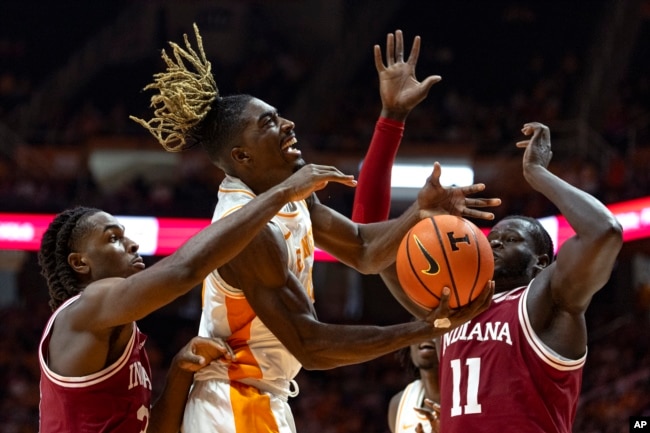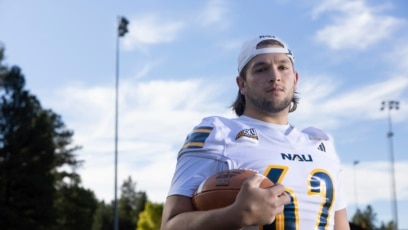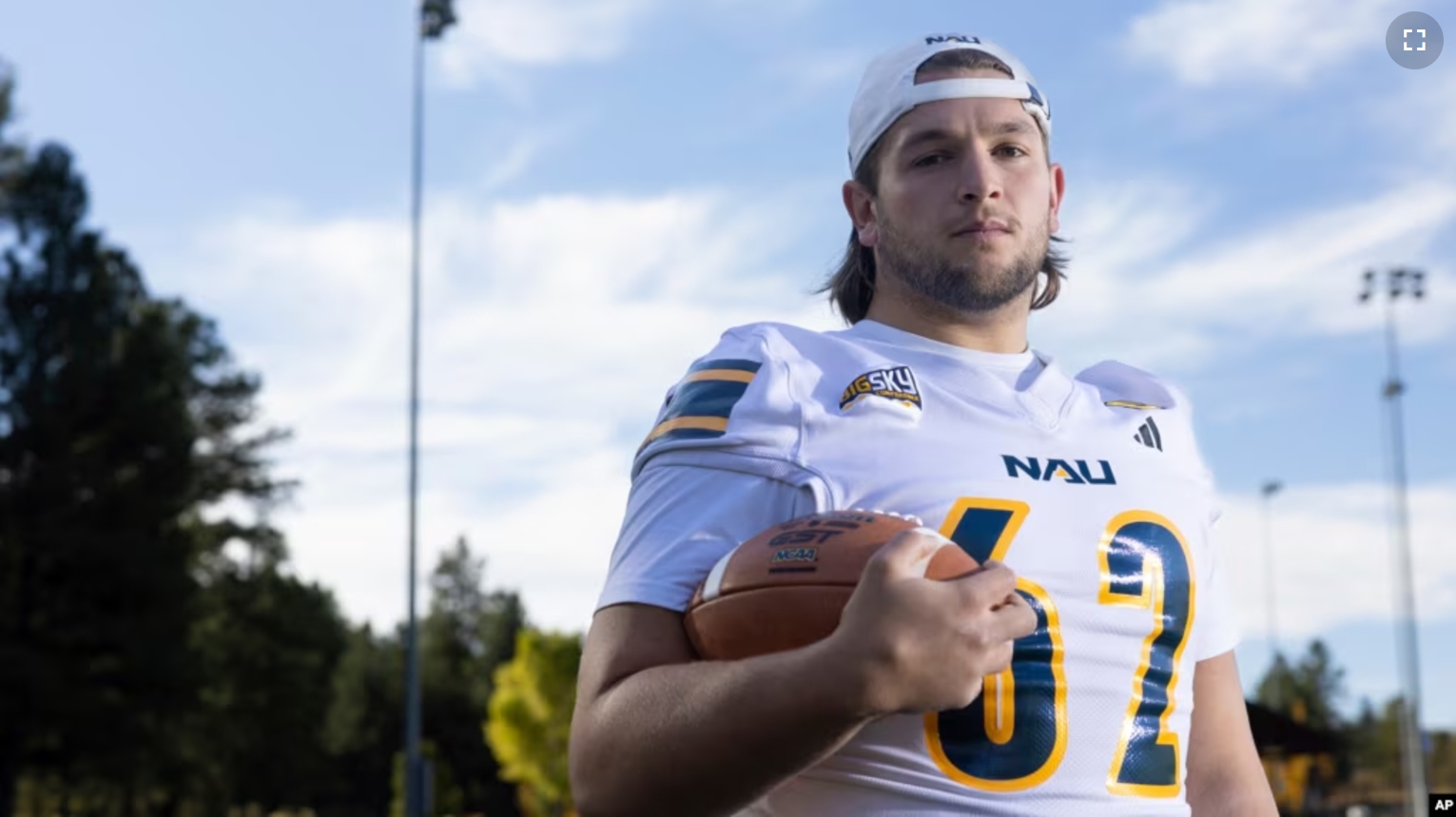Name, image, and likeness, or NIL, deals have enabled student-athletes to make money while going to college in the United States. But outside of some big-name athletes, many say that a degree remains the biggest, most important prize for going to school.
For years, college athletes could only receive free education and living costs while competing for school teams. But that changed in 2021 when the U.S. Supreme Court ruled that athletes could earn money by selling their name, image and likeness.
Well-known athletes like Jayden Daniels, now with the Washington Commanders, and Caitlin Clark, who currently plays for the Indiana Fever, made large amounts of money while in college.

But several athletes told The Associated Press that the money available to them through NIL remains a small consideration compared with earning a degree and competing in the sports they love.
NIL deals were not on Jonny Bottorff’s mind when he transferred to Northern Arizona University on a football scholarship from a small college in Missouri.
Bottorff said, “I think the reality for most college athletes is things haven’t really changed that much. We just got an extra little bit of cash in our pockets…”
For some athletes, NIL money is a reason to stay longer in college. But Anthony Leal said he is staying at Indiana University for a different reason.
Leal plays for Indiana’s basketball team. Under college athletic rules, he can play four seasons for the team within five years. Leal already received his undergraduate degree last year. But he is coming back as a fifth-year student to get a master’s in business administration.
“I’m about 70 percent through the program in the Kelley School of Business,” he said. “I wanted to get that degree.”

Another rule change
Another change in college rules also makes it easy for athletes to transfer and play the next season. Under previous rules, athletes had to sit out a year before competing.
Now, the top athletes can enter what is called a transfer portal to get more NIL money at another school and compete right away. University of Nevada, Las Vegas football player Matthew Sluka, for one, recently left the team in a dispute over an NIL payment. His representative said he was promised payment but never received it.
But Ray Harrison said NIL money was not the reason why he left Presbyterian College and joined the basketball team at Grand Canyon University in Phoenix, Arizona.
Harrison said, “I just came out here because this is where God led my heart. Of course, we win two (conference) championships and that changes things.”
A college education remains a dream for many younger athletes.
Tavarius Covington from Chicago wants to continue to play football in college. He hopes that football will help him become the first in his family to go to college and earn a business degree. He also wants to be an example for his younger brother.
“I want him to know there is more to look forward to coming out of high school,” Covington said.
I’m John Russell.
Cheyanna Mumphrey, Michael Marot, and David Brandt reported on this story for the Associated Press. Hai Do adapted it for VOA Learning English.
Quiz – College Degree Remains Big Prize for Many Student-athletes

Start the Quiz to find out
_______________________________________________
Words in This Story
undergraduate degree— n. a kind of credential you get after high school; a program of study that leads to a qualification such as a bachelor’s degree or associate’s degree
transfer – v. to withdraw from one educational institution to enroll at another
scholarship — n. a grant-in-aid to a student
cash — n. money
